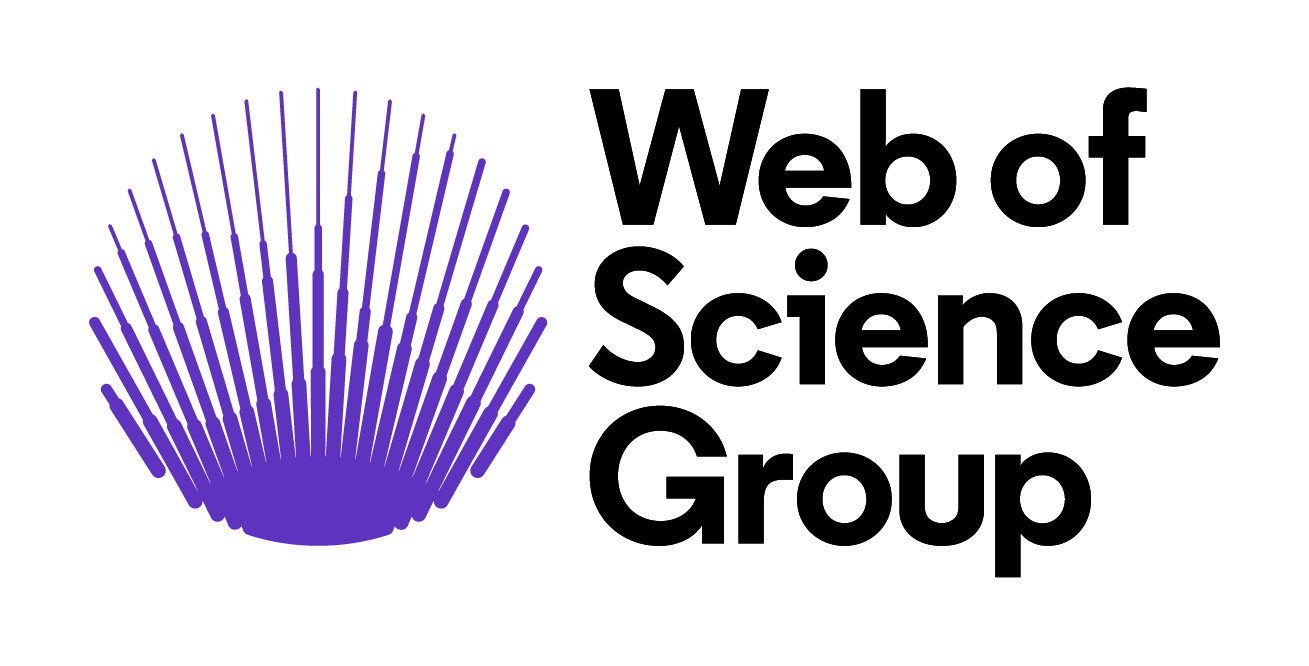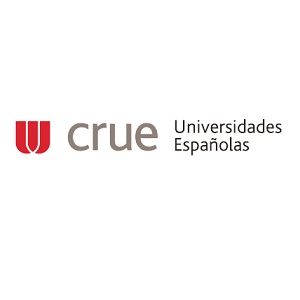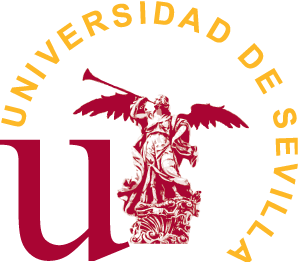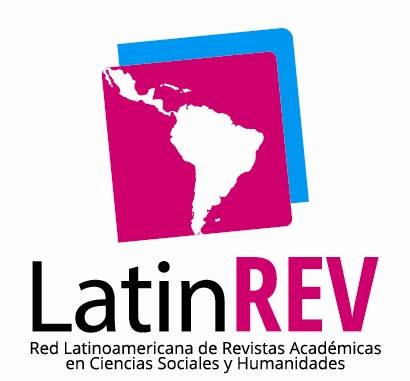Refugiados sirianos en Túnez: Dificultades que acceden a los derechos económicos y sociales
Syrian women refugees in Tunisia: Difficulties accessing economic and social rights
El propósito de este documento es arrojar luz, en primer lugar, sobre la situación de los refugiados sirios en Túnez y examinar las dificultades que les impiden acceder a sus derechos económicos y sociales y a la atención médica. Este artículo se centrará, en segundo lugar, en las aspiraciones de estos refugiados con respecto a su situación legal y su destino final de asentamiento. La tercera parte se centrará en el papel de las organizaciones de la sociedad civil para garantizar los derechos económicos y sociales de los refugiados y solicitantes de asilo en Túnez. Para responder a estas preguntas, se realizó una encuesta cualitativa exploratoria entre las mujeres refugiadas sirias, los trabajadores de la salud y los representantes de las organizaciones de la sociedad civil tunecina, que se especializan en el activismo por los derechos de los migrantes vulnerables.
The purpose of this paper is to shed light, in the first place, on the situation of Syrian refugee women in Tunisia and to examine the difficulties that prevent them from accessing to their economic and social rights and health care. Thus, this article will focus, secondly, on the aspirations of these refugees regarding their legal situation and their final destination of settlement. The third part will focus on the role of Civil Society Organizations in guaranteeing economic and social rights for refugees and asylum seekers in Tunisia. To answer these questions, a qualitative exploratory survey was conducted for this purpose among Syrian refugee women, health workers and representatives of Tunisian civil society organizations specializing in activism for the rights of vulnerable migrants.
Referencias
Bensaâd, A. (2009). «The Maghreb under the threat of sub-Saharan migration. Immigration on emigration». Kharthala editions, 448 pages.
Boubakri, H. (2015). «Migration andasylum in Tunisie since 2011: towards new migratory figures?». Revue Européenne des Migrations Internationales, 31(3-4), 17-39.
Boubakri, H. (2013). «Migrations in Tunisia after the 2011 revolution». Confluences Méditerranée, l’Harmattan, 87, 31-46. Statement by the representative of the United Nations High Commissioner for Refugees in Tunisia at the Tunis-AfriquePresse (TAP) on July 30, 2018.
Durant-delvigneA., Castel D., Boza M., (2017). «The impact of migrant acculturation strategies on sexism, orientation to social dominance and the way in which the migrant is perceived in the host country and country of origin». International Review of Social Psychology, 1(30)29-40.
United Nations Population Fund (UNPF) and Tunisian Association for Reproductive Health (TARH), (2018). “Qualitative Study on Mixed Youth Migration and Needs for Sexual and Reproductive Health Services”. Summary Report, 14 pages.
The Universal Convention on Human Rights of 1948.
ONFP & IOM (2016). «Basic assessment of the socio-economic and health vulnerabilities of migrants for effective access to health services in Tunisia», 104 pages.
Médecins Sans Frontières (MSF) (2005). Report on Sub-Saharan Immigration in an Irregular Situation in Morocco. “Violence and Immigration”. September 2005.
Mediterranean Human Rights Network, (2008). “Economic and Social Rights of Migrants and Refugees in the Euromed Region, Access to Health Care and the Labor Market”, 67 pages.
Thiollet, H. (2013). “Migrations, Asylum and Arab Spring”. La Documentation Française, 133-146.
UNESCO (2004), Country Reports on the Ratification of the United Nations Convention on Migrants Rights, “Migrants and their rights in the Maghreb with special reference to the Convention on the Protection of the Rights of All Migrant Workers”. Section on International Migration and Multicultural Policies. Texts collected by Elmadmad Khadija.
UNHCR (2004). United Nations Refugee Agency, “States Parties to the 1951 Convention Relating to the Status of Refugees and / or its 1968 Protocol (as of December 31, 2004)”, Annex to the 2004 Global Report.
Visitas al artículo
Métricas Dimensions
Métricas PlumX
Descargas
Recibido: 20/11/2018
Aprobado: 23/02/2019
SYRIAN WOMEN REFUGEES IN TUNISIA: DIFFICULTIES ACCESSING
ECONOMIC AND SOCIAL RIGHTS
HAJER ARAISSIA*
ABSTRACT
The purpose of this paper is to shed light, in the first place, on the situation of Syrian refugee women in Tunisia and to examine the difficulties that prevent them from accessing to their economic and social rights and health care. Thus, this article will focus, secondly, on the aspirations of these refugees regarding their legal situation and their final destination of settlement. The third part will focus on the role of Civil Society Organizations in guaranteeing economic and social rights for refugees and asylum seekers in Tunisia. To answer these questions, a qualitative exploratory survey was conducted for this purpose among Syrian refugee women, health workers and representatives of Tunisian civil society organizations specializing in activism for the rights of vulnerable migrants.
KEYWORDS: Syrian refugees; socio-economic rights; access to health care; Difficulties; Civil Society.
REFUGIADOS SIRIANOS EN TÚNEZ: DIFICULTADES QUE ACCEDEN
A LOS DERECHOS ECONÓMICOS Y SOCIALES
RESUMEN
El propósito de este documento es arrojar luz, en primer lugar, sobre la situación de los refugiados sirios en Túnez y examinar las dificultades que les impiden acceder a sus derechos económicos y sociales y a la atención médica. Este artículo se centrará, en segundo lugar, en las aspiraciones de estos refugiados con respecto a su situación legal y su destino final de asentamiento. La tercera parte se centrará en el papel de las organizaciones de la sociedad civil para garantizar los derechos económicos y sociales de los refugiados y solicitantes de asilo en Túnez. Para responder a estas preguntas, se realizó una encuesta cualitativa exploratoria entre las mujeres refugiadas sirias, los trabajadores de la salud y los representantes de las organizaciones de la sociedad civil tunecina, que se especializan en el activismo por los derechos de los migrantes vulnerables.
PALABRAS CLAVE: refugiados sirios, derechos socioeconómicos, acceso a la atención médica, dificultades, sociedad civil.
1. INTRODUCTION
For more than two decades, the migratory identity of Tunisia has changed and become more complex. In addition to its traditional function as a land of emigration, whether legally or illegally, it has become a place of immigration and transit to the European continent. Indeed, since 2011, the date of the outbreak of the Arab revolutions, Tunisia has also become a land that attracts refugees from sub-Saharan countries and countries going through armed conflicts as it happens in Libya and Syria. Thus, the issues of migration to Tunisia have diversified with the changing profiles of immigrants who stay there.
Tunisia is a signatory to the Geneva Agreement relating to the Status of Refugees in 1957 and its protocol relating to the protection of the rights of migrants and refugees in 1968 (UNHCR, 2004, p.499.), but it is only from the year 2011 that we really had to face their reception. In fact, although a draft law on asylum is under consideration in parliament, the legal status of refugees in Tunisia is not yet defined. This legal vacuum, which persists until now, accentuates the difficulties of access to economic and social rights for refugees and asylum-seekers who are present and who are estimated, according to the Office of the United Nations High Commissioner for Refugees, to more than 1,000 people, more than 70% of whom are Syrian nationals. (Statement of representative of UNHCR Tunisia, 2018) Other sources such as the Association “Dignité et Liberté” (Syrian) confirms the existence of more than 1500 Syrians in Tunisia. In fact, information on the number of Syrian refugees and other migrants differs from one source to another, which makes their assistance difficult (ONFP & IOM, 2016, p.20).
Whatever their number, the presence of the Syrian community in our territory has contributed to "renewing the visibility of otherness in the local social landscape" (Boubakri, 2015, p.24) and, as previously attested, has substantially modified the perspectives of the problems of Tunisian society (Ben Saad, 2009). This presence also raised questions about "the prospects for their integration" (Boubakri, 2013, p.32).
This community is made up of whole families, women with their children or single women. They fled the war and the situation of extreme insecurity in their country. The journeys of Syrian refugees to arrive in Tunisia are various and they were not without dangers for some. There are those who came from Libya or Algeria by land and those who came legally by air via Turkey or Lebanon and who were generally supported by a relative residing in Tunisia.
The most vulnerable category among Syrian refugees is women who come alone or with their mothers and women with young children or school-age children (single-parent families). These last two categories live a very sensitive socio- economic situation which worsens with the expiry of their residence cards which makes their situation very delicate knowing that the Tunisian law criminalizes the irregular migration. This state of affairs causes the refugees to lock themselves up and stop confronting the outside world for fear of being arrested.
Questioning the situation of Syrian refugees in Tunisia and the embarrassments that prevent them from accessing economic and social rights is the aim of this article, which will shed light on several issues, including:
What are the difficulties faced by Syrian refugees with regard to their economic and social rights?
What are the aspirations of Syrian refugees regarding their legal situation and their final destination of settlement?
What is the role of Civil Society Organizations in guaranteeing economic and social rights for refugees and asylum seekers in Tunisia?
To answer these questions, a qualitative exploratory survey was conducted for this purpose during the period June-July 2018. This research, although it does not reflect the reality of the conditions of the entire Syrian community in Tunisia, allowed collecting relevant information on the socio-economic and health vulnerabilities of the most marginalized Syrian refugees living in Tunisia.
2. METHODOLOGICAL APPROACH AND PROFILE OF THE RESPONDENTS
The investigative technique chosen to conduct this field research is the focus group, which is considered the most appropriate in this case study. The groups that formed the sample of the study are distributed as follows:
Three groups of migrant women of Syrian origin;
A group of health personnel, public sector health care providers;
A group of actors representing associations and organizations having contact and experience with Syrian refugees.
Table 1. Number and profile of respondents and
|
Profile of respondents |
Number of respondents |
Specific objectives of focus groups |
|
1. Refugee women from Syria |
18 |
- Identify the profiles of Syrian refugees, their journeys to arrive in Tunisia, ...; -To report on the socio-economic and health vulnerabilities of Syrian refugees in Tunisia. - Determinetheir aspirations. |
|
2. Health staffof public sector |
5 |
- Make an inventory of the barriers to access to health care services for refugees; - Determine the attitudes and practices of health personnel towards Syrian refugees seeking health care ... |
|
3. Representatives of Civil Society Organizations including: ADL: Association of Dignity and Liberty (Syrian), Asylum Land Tunisia, Caritas, Doctors of the World. |
6 |
- Make an inventory of the barriers to access to economic and social rights and health services according to the experience of Civil Society Organizations (CSOs). - To know the role played by CSOs to support Syrian refugees; - The role that CSOs can play in the future to better support refugees in vulnerable situations ... |
|
TOTAL |
29 |
|
Source: Field research done by the author, June – July, 2018.
3. THE LIMITS OF THE STUDY
Like every scientific research, this exploratory study has some limitations that can be summed up in the following elements: the almost total absence of statistics on the Syrian community in Tunisia, the small size of the surveyed population, the difficulty of meeting refugees outside CSOs, the duration of focus groups was more or less insufficient to collect more details and information on the studied population.
4. SYRIAN REFUGEES’ TRAJECTORIES TO ARRIVE IN TUNISIA AND GEOGRAPHICAL DISPERSION IN THE COUNTRY
4.1 Trajectories of the surveyed population before arrival in Tunisia
The Syrian revolution, with its multi-dimensional damage and high insecurity, has pushed Syrian migrant women to adopt survival and leak strategies to escape these conditions in their home country. The majority of respondents stated that before arriving in Tunisia, they lived in camps near Turkish borders for a period of four months to three years. Their husbands were all detained and imprisoned for demonstrating against the regime of Bashar Al Assad. After being tortured, raped and assaulted, they fled Syria by air through Turkey and then took an ilegal land crossing from Algeria to Tunisia. This crossing was very dangerous for most of the respondents, during which they suffered physical and sexual violence from smugglers and even by border policemen. They did not have any assistance in the border areas (MSF Report, 2005).
Here are some testimonies of the interviewees about the conditions before leaving the country of origin and during their migratory journey to arrive in Tunisia:
Women and girls are victims of frequent rape. There are even schoolgirls who have been raped and beaten! Our house was destroyed too. The children are killed in front of us, our husbands were arrested and tortured ..." Maya, 36 years old, 2 children, arrival in Tunisia since 2012.
We stayed at the Turkish camps 3 years, I could not see my family, my mother was bombed by a plane, I have no reason to stay in Syria. My husband was arrested, and I was pregnant, finally we decided to come to Tunisia in search of safety. Fatma, 40, 3 children, arrived in Tunisia since 2015.
Because of the war in Duma, we were displaced several times, there was bombing, I had to take my son to the psychiatric hospital... Eya, 34 years old, 2 children, arrived in Tunisia since 2014.
I have experienced a lot of difficulties since I left Edleb in Syria until I arrived in Tunisia. I lived in the street with my newborn baby in Algeria, I suffered harassment and sexual assault several times, I was hit by a border policemen in Tunisia... My Tunisian husband was arrested and imprisoned... Kawthar, 26 years old, 1 child, arrived in Tunisia since, 2014.
4.2 Geographical spread in Tunisia
The presence of Syrian refugees and asylum seekers in Tunisia is not limited to the capital only, but now extends to the border area with Algeria exactly in the governorate of Kasserine and Kef but also in other governorates such as: Sfax, Nabeul, Kairouan, Gafsa, Medenine and Kebili knowing that the outlying areas of Tunis remain the first settlement area for Syrian refugees. In fact, thanks to Algerian and Tunisian smugglers and to their knowledge of the places and modes of circulation in the border areas, Syrian refugees continue to enter Tunisian territory coming mainly from Algeria.
5. DIFFICULTIES OF ACCESS TO THE ECONOMIC AND SOCIAL RIGHTS FOR THE SYRIAN REFUGEE WOMEN IN TUNISIA
According to Article 25 of the Universal Convention on Human Rights “Everyone has the right to a standard of living adequate for the health, comfort and the well-being of his / her family, including food and clothing, housing, medical care and the necessary social services; she/ he has the right to security in the case of unemployment, sickness, disability, widowhood, old age or in other cases of loss of her/ his means of subsistence as a result of circumstances beyond her/ his control. Motherhood and childhood are entitled to special help and assistance...”
Despite the universality of the recognition of the fundamental rights of all people on earth, Syrian migrant women and refugees in Tunisia live in very difficult socio-economic conditions. They live without resources or with insufficient financial support. They face multiple barriers and daily challenges to accessing their right to health care, decent housing and decent work.
According to the results of our survey, migrant women in an irregular situation live in very precarious conditions at all levels. Essentially those who are arrived from Algeria by land, alone or accompanied by their mothers and children. Some of them haven’t been able to complete the formalities of entry into the territory and are thus being prosecuted for illegal border crossing.
I am shocked that I have almost died many times. Imagine at the age of 19, I was alone crossing Tunisian-Algerian borders in the evening with a baby aged 2 months, then I was raped and beaten by the border police... Leila, 19, 1 child, arrived in Tunisia in 2014.
5.1 Difficulties accessing the labor market
The vast majority of the respondents are in an irregular situation, without residence visas and without any protection. This status strongly impacts the lives of these refugees who live in a situation of precariousness and traumatic insecurity especially as their legal situation exposes them to arrests which force them to hide. This prevents them from going out for work or even contacting organizations to ask for their support. The few respondents who arrived legally before the break-off of diplomatic relations between Tunis and Damascus also do not have access to “economic and non-economic resources”. (Durant-Delvigne & al, 2017, 30) They haven’t been able to obtain a residence permit until today. In fact, with the absence of a legislative framework in Tunisia, it is the Office of the High Commissioner for Refugees which ensures the formalities of application for asylum and the granting of a temporary "document" for the refugees to be able to circulate, at least, freely in Tunisia. This document doesn’t prevent them from living without a residence permit, without the possibility of legal work: a situation which over time is dramatic.
Regarding access to the labor market, the Syrian refugees surveyed testified that they are still struggling to find adequate jobs and they are experiencing increasing difficulties, especially with the decrease or cessation of financial aid granted by international organizations. In fact, because of the situation of acute economic crisis in Tunisia in a context of political instability, even precarious jobs in the informal sector and small jobs they perform occasionally, are difficult and poorly paid especially since they are more and more difficult to find. This state of affairs, pushes them to frequent moves because of the difficulties generated by the inability to pay the rent of the houses. In this case, refugees have had to rely on the unpredictable income they are trying to obtain through "moonlightingwork", which is often precarious and performed in inhuman working conditions. Several respondents were forced into begging. Lack of resources makes them particularly vulnerable to exploitation in prostitution or in forced labor activities such as domestic servitude.
I tried to work in a cable manufacturing plant, but because of the hardness of this job, I quickly gave up ... Now I risk being fired for non-payment of my rent. Manel, 32 years old, 1 child, arrived in Tunisia in 2014.
I am very worried because I am no longer entitled to financial aid from the Tunisian Red Crescent from this month, and I have not yet found a job... so I will not be able to pay my rent anymore nor feed my children who are 7 and 11 years old... Sometimes I prepare Syrian dishes and I sell them at neighborhood grocers, but the income is still insufficient. Other times, I find myself forced to beg in the streets or do housework that is very poorly paid… Jinen, 40, 2 children, arrived in Tunisia in 2013.
5.2 Difficulties to access decent housing
Regarding accommodation, some interviewees who arrived illegally said that at the beginning of their arrival in Tunisia, they were hosted by friends and families already settled in the host country who often offerhelp and assistance (money, accommodation, advice) to newcomers. This solidarity between Syrian refugees, as a social and cultural community, is very present. It impacts their ability to resist to the difficulties experienced. In fact, the social ties of most of the refugees encountered are woven within their community because relations with the Tunisian population are rather limited. Refugees who have come alone, with their mothers, or with their children and who don’t have friends or relatives in Tunisia often rent rooms with Tunisian families. They live in rudimentary conditions of accommodation and higiene while there are vulnerable people among them, mainly sick elderly women and children in need of health care and specific support.
5.3 Difficulties to meet with members of the remaining family in Syria
Syrian women surveyed who have family members still in Syria testify to their inability to meet with them despite their attempts by the Tunisian authorities to bring them. The respondents explain the refusal of the authorities by the irregularity of their legal situation since they do not have the right to move freely, to travel to Syria and to bring their relatives to Tunisia. They look forward to the re-establishment of diplomatic relations between Tunisia and Syria and the reopening of the air zone between the two countries to meet their family members. “I have only one wish: to see my mother before she dies. She is diabetic and elderly...” Emna, 42, 3 children, came to Tunisia in 2012.
It's been six years since I could not see my mother suffering from cancer, she is seriously ill, I can’t bring her here in Tunisia, nor go to see her in Syria... Soulef, 39, 2 children, arrived in Tunisia since 2012.
5.4 Difficulty to access schooling for Syrian children in Tunisia
When asked about the schooling of their children, all of the interviewed women revealed their dissatisfaction with this issue. In fact, although the Ministry of Education has issuedacircular authorizing Tunisian schools to accommodate Syrian children and help them integrate, this case is proving very difficult, especially because of problems with the Tunisian school curriculum especially with the French language which is not mastered by the Syrians. The refugees also said that there are teachers and directors from some schools who refused to admit their children under the pretext of the delay they can (Syrian children) cause because of the lack of language skills especially French, the second language used in the Tunisian curriculum. Some respondents admit that even if their children have difficulty integrating into Tunisian schools, they can’t support them to succeed in their schooling because of language problems.
5.5 Difficulties accessing health care
In response to our question about the difficulties of access to health care, all the respondents confessed that they live a great health precariousness and that they face multiple obstacles to access this fundamental right on the Tunisian territory. In fact, when they solicited public health services, they were not well received and they were not supported by health professionals. Women respondents who have children said that they couldn’t vaccinate them for free since they did not know that this service is available free of charge in Tunisian public health structures.
The survey showed that the most vulnerable Syrian women refugees experience difficulties of all types with regard to the issue of access to health care because of several problems, including: mistreatment, administrative difficulties, lack of knowledge of public health services. This confirms the statement made by EuroMedRights about the “lack of information, the refusal of administrative procedures that allow refugees to benefit from health care”. (Mediterranean Network of Human Rights, 2008, p34). Some of them had to resort to abortion because they could not access reproductive health services easily. Their children also did not have easy access to health care. “Given my legal situation, I could not consult public hospitals to treat my son. Sometimes I buy him drugs without medical prescription .... My neighbor and compatriot has resorted to illegal abortion for the sake of not being able to benefit from maternal health care”. Manel, 32, 1 child, arrived in Tunisia in 2014.
Only few respondents revealed that they actually benefited from effective access to health care in Tunisian public services, although this access is still deficient. Their children were able to access health care only through School and University Medicine.
The interview with the health professionals surveyed revealed that migrants and refugees living in Tunisia generally do not know, in most cases, that there are international laws and national mechanisms that guarantee their fundamental rights including access to health care. They also said that migrants and refugees live with vulnerability and health precariousness which are directly related to their socio-economic conditions.
Several barriers to access to health care contribute to the deterioration of the health status of these people. Among these barriers are the financial difficulties that often push them to give up their care, the legal status, the lack of specific legislation for the medical care of refugees and irregular migrants, the lack of knowledge of the right of access to health care, ignorance, by health workers, of the rights of migrants and refugees, lack of information on accessible health care services, violence suffered by Tunisian patients when attending public health services, cultural barriers and communication difficulties, bad reception by health staff...
Given these barriers, refugees and irregular migrant women resort to CSOs and NGOs specializing in the support of migrants, including the Tunisian Red Crescent (TRC), the International Organization for Migration (IOM), Médecins du Monde ( MDM), Caritas, Migrant Rights Houses (MRM), ... However, even with the support of these organizations, women refugees with children are in great need of maternal and child health care and can’t consult with the private sector, which is considered very expensive.The health staff surveyed presented the list of available and accessible health services for migrants, which are as follows:
The care structures of the first three lines: the Basic Health Centers, the Regional Hospitals and the University Hospitals;
National public health programs such as the National Program for Reproductive Health and Family Planning, the National Immunization Program, School and University Medicine, the National Tuberculosis Program, the National HIV Program / AIDS.
Although these national structures and programs do not exclude migrants, they differentiate them from Tunisian patients, especially since they are ignored by refugees and migrants, especially those who have recently arrived in Tunisia.
6. ASPIRATIONS OF THE RESPONDENTS
Respondents’ responses to their aspirations about their legal situation and final settlement destination were mixed, dissimilar and varied according to their desire to settle or leave Tunisia. For those who want to stay in Tunisia, and who are among the minority, they aspire first of all to regularize their residence status to be able to look for a job. They also aspire to “the abolition of residence penalties” (UNPF report, 2018, p7), access to decent housing, “finding a place among Tunisian society”, having Tunisian nationality, access to health care, ensuring a good schooling for their children. “Al though my husband is Tunisian, I am still undocumented, the situation of my son is not always regularized ...” Leila, 19, 1 child, arrived in Tunisia in 2014.
The majority of respondents, who don’t want to stay in Tunisia and who reject the possibility of returning to Syria, aspire totravel to the European Union countries despite the lockdown of their territories through the tightening of their migration policies (UNESCO report, 2004) and “the restriction of asylum conditions” (Thiollet, 2013, p.133). Germany is now their preferred destination. One respondent confirmed that her “lucky friend”, who managed to find refuge in Germany, told her that the Syrian refugees there are living well and that they are in need of nothing...
Other interviewees, mainly elderly women, want to return to the country of origin as soon as the security situation in Syria improves. They live a moral suffering and can’t integrate into Tunisian society. “I want to go back to my country, I haven’t lost hope yet, I have a lot of memories there. The Tunisian people are very welcoming but I haven’t managed to integrate socially”. Majida, 62, arrived in Tunisia in 2012.
It can be seen that even if the migratory phenomenon is plural, the conditions of residence and the different obstacles endured by the migrants or the refugees don’t have the same impact on the physical and mental capacities of resistance and thus the degree of their motivation to integration is different. It is often the personal history of each migrant and the individual and singular dimension of the “migration project” that finally takes over.
7. ROLE OF CIVIL SOCIETY IN GUARANTEEING THE FUNDAMENTAL RIGHTS OF MIGRANTS AND REFUGEES
In Tunisia, aid to Syrian refugees is provided mainly by civil society. In fact, the aid programs deployed by international institutions (UNHCR, IOM, UNICEF, etc.), the humanitarian operations launched by transnational NGOs (Caritas, Red Crescent, Land of Asylum, etc.) and the work of Tunisian associations have made it possible to remedy the State's dysfunctions. Actions of solidarity with Syrian refugees have also been largely the result of initiatives from a few Tunisian families who, despite being severely hit by the socio-economic crisis, have not hesitated to welcome Syrian refugees and to share with them the little they had: food, living space, even the few jobs still available (small daily jobs).
In a focus group with representatives of Tunisian and foreign civil society organizations, they all emphasized that migrants and refugees are considered as carriers of disease and a burden on the health system and that there is a lack of aware ness about their fundamental rights in general. This lack of knowledge leads to an inability to mobilize the resources that exist around them in their favor and to overcome the difficulties they endure daily. This impacts their living environment and creates a painfully psycho-sociological lived situation.
The representatives of civil society and human rights organizations discussed the question of concrete support for Syrian refugees in Tunisia.
Regarding the actions undertaken by Tunisian and foreign NGOs for the benefit of Syrian refugees, the respondents cited several achievements including: Participation with other NGOs in advocacy for the elimination of barriers to health care and improved benefits; Awareness-raising around issues related to the day-today life of refugee and migrant women victims of violence; the management of daily health care needs and in times of crisis; promotion of a favorable protection environment for refugees, asylum seekers and migrants; providing humanitarian, medico-social and financial assistance for refugees and irregular migrants; mediation between Tunisian practitioners and patients to facilitate access to health care in the public sector in case of urgent operations; support, guidance and legal assistance in case of exploitation, trafficking or violence suffered by refugees...
Tunisian civil society organizations working for the cause of migrants and refugees rights in collaboration with international organizations based in Tunisia, have a very important role to play in raising awareness around fundamental rights issues alongside the operational role of one-off support that they are playing with respect to migrants and refugees staying in Tunisia.
Among the future projects that the NGO representatives interviewed wish to undertake, the following actions are cited: The inclusion of migrants and refugees in the public health system; organization of trainings for health professionals on the rights of migrants in terms of reception, orientation and care and trainings for police professionals in the field of migrant rights and the need to take seriously and fairly the complaints lodged by migrant women and refugees in case of violence or request for help; The work on the facilitation of the regularization and the abolition of the penalties of stay; the implementation of a communication strategy aimed at sensitizing citizens, authorities, health professionals, pólice professionals on the rights of migrants and refugees and on the new laws that guarantee the rights of migrants; facilitation of the access to housing, food, transportation, and trainings ; promotion the social, cultural and economic integration of refugees and migrants; assistance for the creation of income-generating activ ities for refugees in order to satisfy their basic needs in a decent and sustainable manner…
Finally, the representatives of the civil society organizations interviewed pointed out that the absence of a national asylum law should not prohibit the supervisión and accompaniment of the specific and urgent needs of the exiled populations in Tunisia, especially the Syrian refugees.
8. AS A CONCLUSION
Although the legal framework of refugees and asylum seekers is still incomplete and Tunisia has not yet been able to fulfill the favorable conditions that allow this country to be a land of refuge and asylum, an increasing number of sub-Saharan migrants and refugees consider it (Tunisia) as a safe country and find refuge there. This can only encourage Tunisia to revise its still restrictive migration policy by launching a program aimed at improving the governance of its migration. A new migration policy aimed at combating injustice and socio-economic inequalities and guaranteeing the fundamental rights of emigrants, immigrants, refugees and asylum seekers. It must be more inclusive and more respectful of human rights, taking into account the humanitarian aspects of migration, not just the security aspect. The approval of laws, legal texts and national and international mechanisms to develop a comprehensive strategy on the integration of migrants in Tunisia will be the cornerstone of this policy, which must respond appropriately to aspirations and protection needs of refugees and asylum seekers. In fact, several Tunisian associations have made the defense of migrants' rights their field of action. They operate with international networks for the defense of migrant and refugee rights. However, despite this, the problem persists because of an anchorage in the perception of the migratory problem between the civil society, which privileges the humanitarian dimension, in particular the respect of the fundamental rights of the migrants and the State which privileges the security aspect of migration. The cause of this anchorage is the fear of attracting new refugees. To find a balance between political and diplomatic constraints and legal restrictions, Tunisia highlights the difficult of the socio-economic situation that it crosses in order to justify the lack of health services and inaccessibility to the labor market for migrants, refugees and asylum seekers.
BIBLIOGRAPHIC REFERENCES
Bensaâd, A. (2009). «The Maghreb under the threat of sub-Saharan migration. Immigration on emigration». Kharthala editions, 448 pages.
Boubakri, H. (2015). «Migration andasylum in Tunisie since 2011: towards new migratory figures?». Revue Européenne des Migrations Internationales, 31(3-4), 17-39.
Boubakri, H. (2013). «Migrations in Tunisia after the 2011 revolution». Confluences Méditerranée, l’Harmattan, 87, 31-46. Statement by the representative of the United Nations High Commissioner for Refugees in Tunisia at the Tunis-AfriquePresse (TAP) on July 30, 2018.
Durant-delvigneA., Castel D., Boza M., (2017). «The impact of migrant acculturation strategies on sexism, orientation to social dominance and the way in which the migrant is perceived in the host country and country of origin». International Review of Social Psychology, 1(30)29-40.
United Nations Population Fund (UNPF) and Tunisian Association for Reproductive Health (TARH), (2018). “Qualitative Study on Mixed Youth Migration and Needs for Sexual and Reproductive Health Services”. Summary Report, 14 pages.
The Universal Convention on Human Rights of 1948.
ONFP & IOM (2016). «Basic assessment of the socio-economic and health vulnerabilities of migrants for effective access to health services in Tunisia», 104 pages.
Médecins Sans Frontières (MSF) (2005). Report on Sub-Saharan Immigration in an Irregular Situation in Morocco. “Violence and Immigration”. September 2005.
Mediterranean Human Rights Network, (2008). “Economic and Social Rights of Migrants and Refugees in the Euromed Region, Access to Health Care and the Labor Market”, 67 pages.
Thiollet, H. (2013). “Migrations, Asylum and Arab Spring”. La Documentation Française, 133-146.
UNESCO (2004), Country Reports on the Ratification of the United Nations Convention on Migrants Rights, “Migrants and their rights in the Maghreb with special reference to the Convention on the Protection of the Rights of All Migrant Workers”. Section on International Migration and Multicultural Policies. Texts collected by Elmadmad Khadija.
UNHCR (2004). United Nations Refugee Agency, “States Parties to the 1951 Convention Relating to the Status of Refugees and / or its 1968 Protocol (as of December 31, 2004)”, Annex to the 2004 Global Report.
PARA CITAR ESTE ARTÍCULO
Araissia, H. (2019). Syrian women refugee in Tunisia: Difficulties accessing economic and social rigths. Collectivus, Revista de Ciencias Sociales, 6(2), 91-103.
DOI: http://dx.doi.org/10.15648/Coll.2.2019.6
* Doctorate in Demography. Faculty of Humanities and Social Sciences. University of Tunisia. 6, rue ibn saiid andaloussi, cité mahrajène, appartement 2, 1082, tunis – tunisia. hajeraraissia@yahoo.fr
Los originales publicados en Collectivus, Revista de Ciencias Sociales, son propiedad de la Universidad del Atlántico, siendo necesario citar la procedencia en cualquier reproducción parcial o total.
Importante: Los artículos publicados en la Revista Collectivus son responsabilidad exclusividad de sus autores y no comprometen el pensamiento de los miembros de la estructura editorial de la revista.
Los derechos de autor pertenecen a Collectivus, Revista de Ciencias Sociales. Por ello, la reproducción total o parcial del material publicado está prohibida, salvo autorización previa y conforme a los estándares de licencia de uso y distribución “Creative Commons Reconocimiento-No Comercial 4.0 Internacional”.


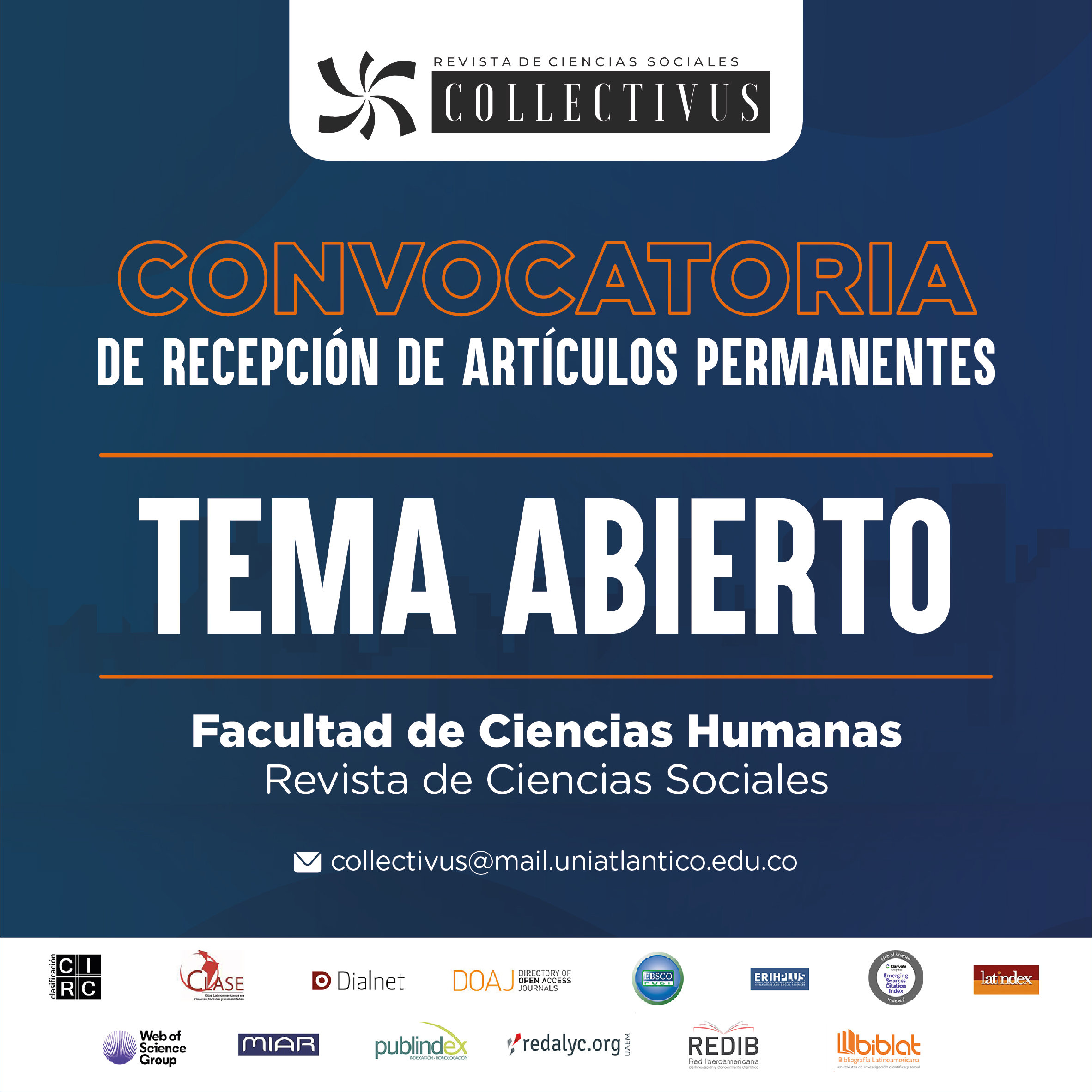




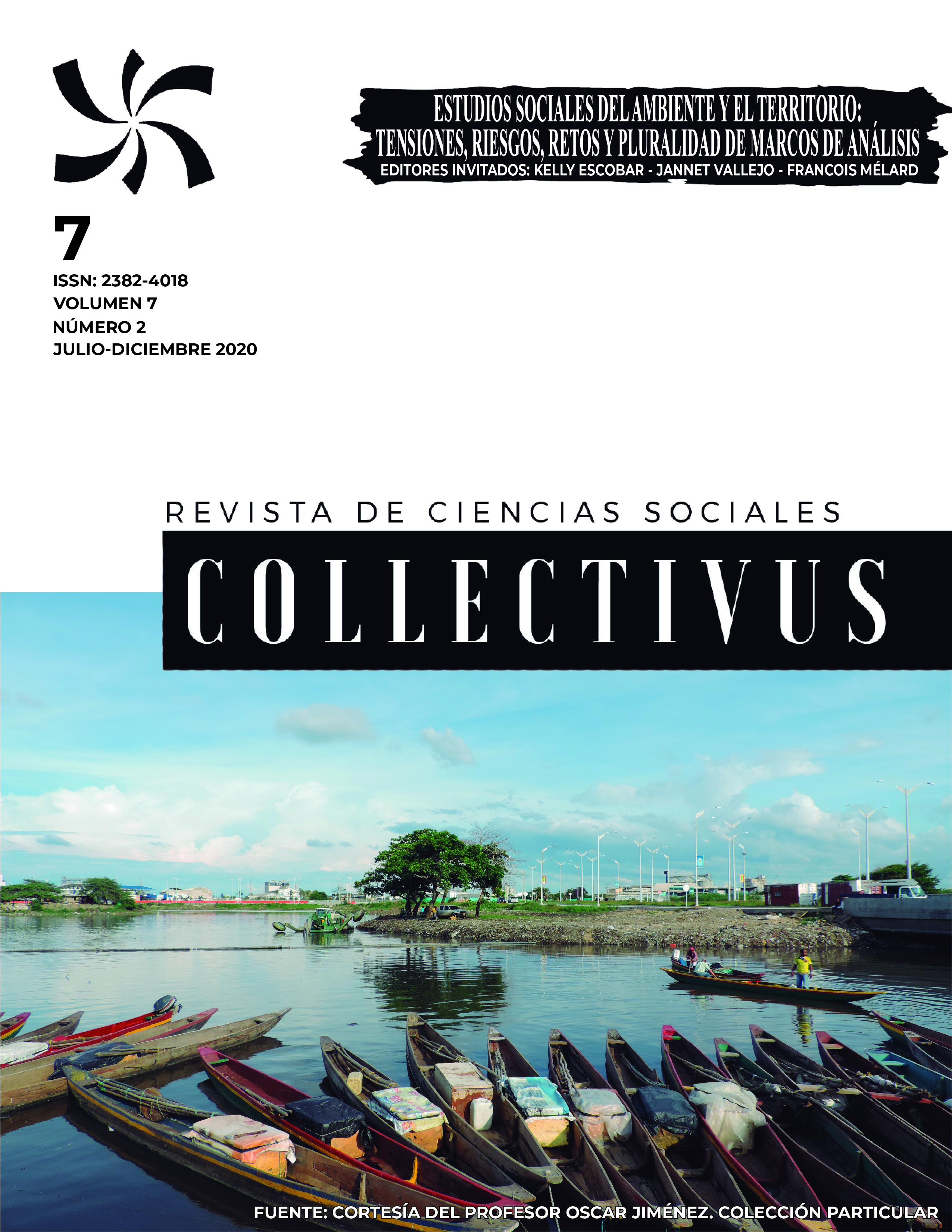
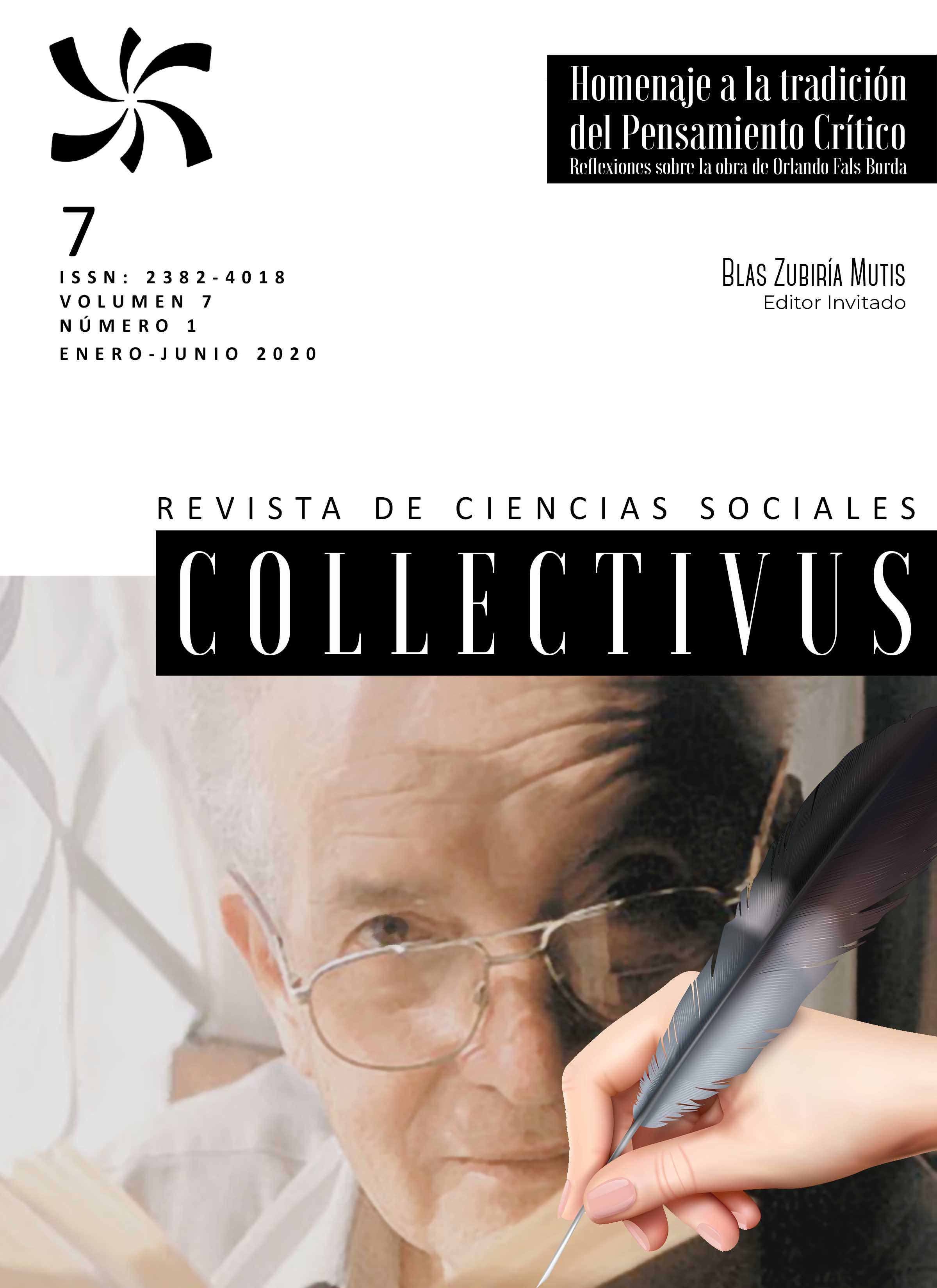
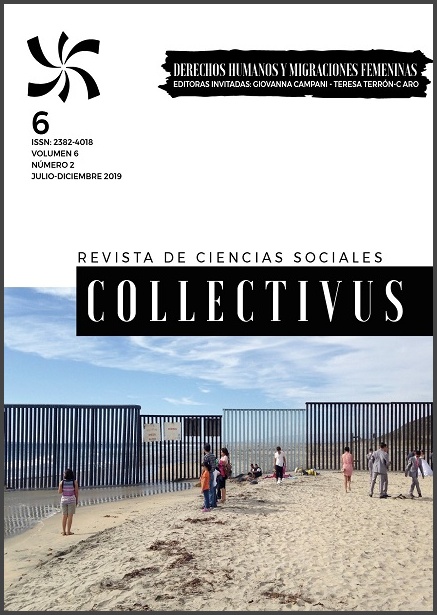
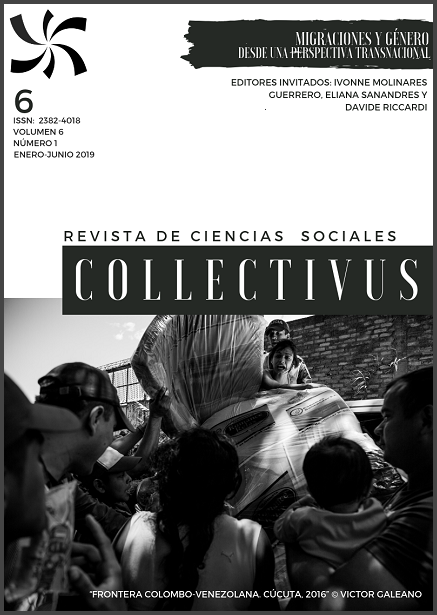


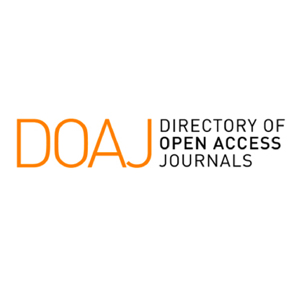

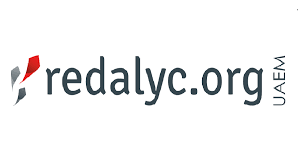

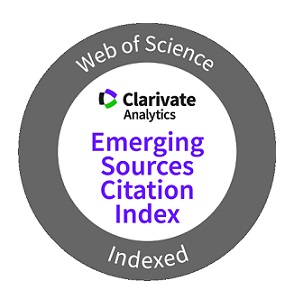



.jpg)
.PNG)



